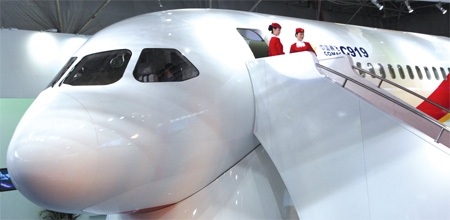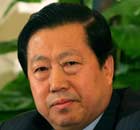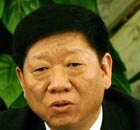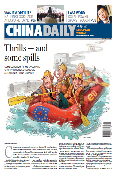Putin push for Japan's nuke power
Updated: 2009-05-20 07:41
By Liu Junhong (China Daily)
Last week's visit of Russian Prime Minister Vladimir Putin to Japan was perhaps more fruitful for Tokyo. Putin signed a series of agreements, including one on nuclear energy cooperation, with Japanese Prime Minister Taro Aso.
Putin tried to use the visit to help Russia emerge out of global economic crisis through the Asia Pacific road. And Japan took the opportunity to acquire the rights of exploiting Russia's natural resources, especially oil, and to get a stable supply of nuclear fuel from Moscow. The deals will boost Japan's resource supply, strengthen its presence in East Asia and put it in a more strategic position.
In an interview with Nikkei, Kyodo and NHK before the visit, Putin highlighted the principle of "economy first". Japan is Russia's crucial partner in cutting-edge technology exchange, with achievements in economic cooperation being the prerequisite for comprehensive strategic bilateral partnership, he said.
Putin's main aim was to boost bilateral cooperation between the two countries, flesh out Russia's strategy for East Asia and transform its economic growth model to help Moscow overcome the economic crisis and play a bigger role in Asia Pacific.
From 2000 to early 2008, when Putin was president, the Russian economy grew at an average 7 percent a year because of a surge in oil prices and inflow of foreign investment in the country.
Russia's "golden age" was during the later part of Putin's presidency, when his "big ruble plan" promoted the internationalization of Russia's finance. As a member of BRIC countries (Brazil, Russia, India and China), Russia offered the most lucrative investment prospects. Investors from Europe and the US flocked to the country, helping its stock and foreign exchange markets boom.
But last year, Russia's economy suffered a double blow-from the global financial crisis and the plunge in oil price. Its stock market plummeted, the ruble nose-dived, its foreign exchange reserves shrunk, corporate debts ballooned and economic growth reversed. The International Monetary Fund has said the Russian economy could contract by up to 6 percent this year.
Putin was once determined to rid Russia off its dependence on natural resources and develop a more balanced economy. But his plan was drowned in the flood of oil money.
Instead, he nationalized the country's oil and gas resources, and set up an "oil-price stabilizing fund" that equaled high export tariff, making profits difficult to be transferred to corporate houses for re-investment. The firms had to borrow from abroad to increase production, making Russia dependent on foreign loans.
True, Russia's service sector boomed but that was because of the unprecedented flow of oil money. The flip side of the boom was that it made extravagant and conspicuous consumption rampant, throwing the economy into deep debt once the global financial crisis struck. Now international investors are even calling for Russia to be removed from the BRIC club of investor-friendly destinations.
Worse, a greater clash of interests because of the economic crisis has brought more disputes between Russia, the US and European countries to the fore. That has made US and European investors shy away from Russia, prompting Putin to look for new investment sources, and his Japan visit is a move in that direction.
Before he embarked on the tour, Russia prepared almost 200 economic and technological cooperation projects, including on energy, lumber, automobile, telecommunication and the environment. To attract Japan to its oil, gas and enriched uranium, Putin arranged a joint development project of oil and gas in East Siberia and even worked out a nuclear power cooperation project.
Japan seems to have reaped equal, if not more, benefit from Putin's visit. Getting oil and gas from the Far East and acquiring Russia's nuclear fuel have been Japan's long-cherished dream. The new economic growth strategy of Aso of making Japan "a world-class resources power" is aimed at strengthening the country's political influence. And Russia's offers matched Japan's needs pretty well.
The Japan Oil, Gas and Metal National Corporation signed a contract with Russia to explore and exploit its No. 1 mining zone in East Siberia even before Putin's visit. Work on the project will begin later this month.
During the visit, the two countries agreed to a new deal that offered Tokyo the right to develop the 8,100-sq-km No 2 mining zone, which has an annual production capacity of hundreds of millions of barrels of crude oil. Japanese firms have obtained the right to take part in the construction of Pacific petroleum pipelines, too.
In February, Aso and Russian President Dmitry Medvedev signed an agreement, which made Japan the only direct importer of gas from Sakhalin, and would ultimately make it the de facto oil and gas supplier in Northeast Asia.
Russia and Japan seem to be made for each other when it comes to cooperation in nuclear power. Russia is not only among a few uranium-abundant countries, but also a member of the small club that controls the uranium-enriching technology. The two countries' cooperation agreement on nuclear power promises to offer Japan a stable supply of nuclear fuel and to jointly build a reserve of enriched uranium.
Besides, after Toshiba acquired US nuclear-appliances maker Westinghouse, Japanese nuclear power firms such as Fuji Heavy Industry, Hitachi, Mitsubishi Heavy Industry and Mitsubishi Electric have intensified their cooperation with European and US nuclear power sectors.
In recent years, Japan has signed nuclear power cooperation deals with the US, France, Australia, Canada, South Korea and Kazakhstan, and thus expanded its capability in all nuclear power fields - from designing and making nuclear appliances to developing, processing and supplying nuclear fuel. It has thus become a pole on the global landscape of nuclear power.
About 15 percent of Japan's nuclear fuel imports come from Russia now. Once the two countries' begin cooperating in this field in right earnest, the figure could jump to 25 percent. In this age of climate change, it will pave the way for Japan's supremacy in the new energy industry.
The author is a researcher with China Institute of Contemporary International Relations.
(China Daily 05/20/2009 page9)
Paper's Digest

Chinese jet takes on Big 2
First large commercial plane set to ride on demand for aircraft as economy grows.
Super-CPU only for domestic eyes
Specials

Gaining ground
Doing business in china for westerners has come a long way, Peter batey says.

Safeguarding environment a priority
China continues to face mounting pressure to curb environmental degradation, despite progress in reducing pollution over the last five years, the environmental protection minister warned.

Employment to remain a continuing challenge
China's top labor official said the country will face a tough employment situation in the next five years.
